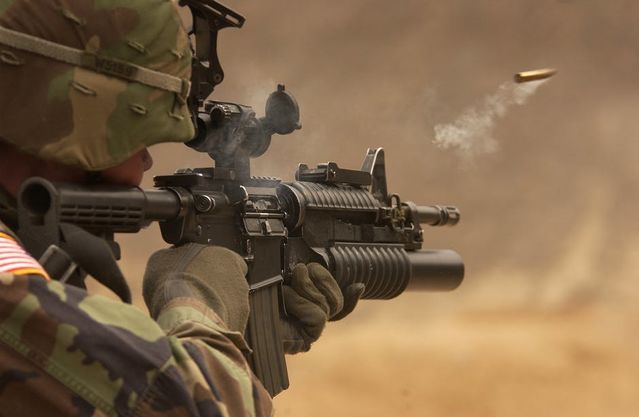Stress
We Should Empower Veterans—Not Cage Them
We need to challenge the modern day Veteran narrative.
Posted February 6, 2018
By David Rose
“There is such a thing as a ‘natural soldier’: the kind who derives his greatest satisfaction from male companionship, from excitement, and from the conquering of physical obstacles.” -Gwynne Dyer, War
There is a certain personality out there, and it’s attracted to military service.

And then these people eventually get out of the military.
Rather than empower this demographic, American society has largely chosen to do the opposite. We’ve all seen the billboards: We Hire Veterans! Aside from this being savvy marketing, these signs usually have a way of insinuating that Veterans are either a handicap group requiring charity and assistance, or a beleaguered minority.
Perpetuating the victim narrative has become popular. Combat veterans are victims of PTSD or victims of politicians who didn’t have the Veteran’s best interests in mind. We all know the tropes. The result is a culture in which citizens feel all Veterans now require therapeutic painting classes and pity, rather than view them as able, upwardly-mobile individuals who willingly engaged in risk and who now only seek similar challenges.
This desire—this seeking out austerity and risk as a means of flourishing—is from my experience as real as it is misunderstood. It could be genetic; I don’t know. Point is, it’s fundamental to their development, sense of purpose, and ultimately their happiness. But all these risks and dangers are just a means to an end. The goal is empowerment; to be self-actualized, useful and needed, and in ways that perhaps seem less and less relevant (or maybe less praiseworthy) in modern times. One thing is certain, however, if deprived of their ability to attain all or most of these then all the good intentions mentioned above have a reversal effect.

An analogy comes to mind, one that has been shared and agreed upon in varying degrees by a number of fellow combat Veterans: A common zoo tale centers on the great hunting cat, prowling back and forth in its unimpressive cage. Given food and water, but denied the ability to compete and hunt, such animals can die in captivity. At first appearance it may seem these animals have hit the lottery; no risk of being mauled by a competitor, no risk of starvation at the hoofs of too-fast prey. But the harshness of natural life is an essential ingredient in its overall well-being. It needs the good stress, and a lack of it causes a debilitating strand of bad stress.
On the human front, I believe there are at least two reasons for the current enabling of the Veteran culture. Much like stress, one is good and the other isn’t. There is genuine concern. Empathetic types can’t imagine themselves in situations where they see their friends die violently or have to take human life. Such empathy leaves them wanting to comfort those who have lived through these experiences, and they are doing so with the tools they believe work best.
But there are also people who are repulsed by the characteristics they secretly feel may attract some to war: aggression, confrontation for its own sake, even downright psychopathy. The thought of amiable, forlorn Veterans deep down being those things puts a chill down many spines. So, rather than transgress one of the most politically incorrect and socially taboo topics alive today—criticizing Veterans (thus treating them like competent adults, mind you)—those falling into this latter category find it best to just sugarcoat the entire Veteran narrative.
A sensible critic may say that if such bold personalities require empowerment, then isn’t asking society to “empower them” positing an oxymoron? After all, wouldn’t the truly empowered by definition not need the help? No. From the tribal level on up, the way a society views its members determines much of the interplay between them. Competency will be diminished when not given the correct space to be proven.

If we concede the complexity of the Veteran demographic, then the entire narrative changes. Some cats need to hunt, not be given a cold lump of meat. If society desires a better understanding—and such a desire is indicated by the very existence and acceptance of this article—there will be elements that society will like and others it won’t. But take it from a Vet, people who signed up freely to get into gunfights can take some criticism, inquiry, and being viewed and treated as multi-dimensional as the next person. That’s far better than being enabled, and then escorted to a comfortable cage.
Guest blogger David Rose is a former Recon Marine and Veteran of the Iraq war. He holds a master’s degree in Philosophy of the Social Sciences from the London School of Economics & Political Science. He is also the author of military-themed works No Joy and From Sand and Time. Follow him on: Instagram Twitter Amazon Goodreads




